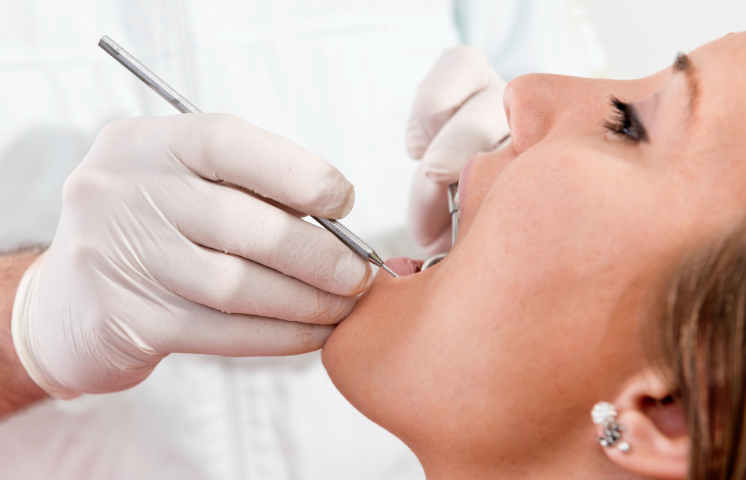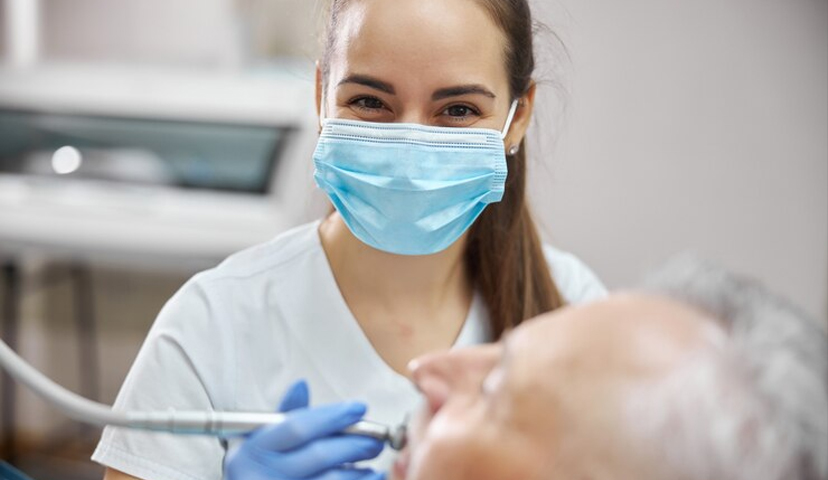The Impact of Smoking on Your Dental Cleaning Results

Smoking is one of the most detrimental habits for your oral health. While many people know smoking can stain teeth and cause bad breath, fewer realize its more profound impact on dental cleanings.
If you’re a smoker, you might find that your routine cleanings don’t deliver the same results as they do for non-smokers. But why is that?
The truth is that smoking affects more than just your teeth’s appearance. It plays a key role in plaque buildup, gum disease, and even the ability to heal after professional cleanings. Dental cleanings are crucial for smokers, but they often require more attention and maintenance.
In this blog, we’ll dive into how smoking affects the effectiveness of your dental cleanings and offer insights on how you can take better care of your oral health.
Let’s explore how smoking complicates your dental hygiene routine and what steps you can take to improve your results at the dentist. Ready to learn more? Let’s get started!
How Smoking Contributes to Plaque and Tartar Buildup?
Smoking doesn’t just stain your teeth—it also increases plaque buildup. Plaque is a sticky film of bacteria that forms on your teeth, leading to tartar if not removed. This buildup is more difficult to remove for smokers, especially because tobacco encourages the growth of bacteria in the mouth. Plaque turns into tartar over time, which can only be removed by a professional cleaning. Smoking weakens your saliva’s ability to fight bacteria, making it harder to keep plaque in check. As a result, smokers often need more extensive cleanings to manage plaque and tartar.
- Tobacco use promotes plaque accumulation.
- Tartar buildup is more challenging to remove with routine brushing.
- Smoking makes plaque removal during professional cleanings more challenging.
- Regular dental cleanings are essential to manage buildup.
- More frequent cleanings may be necessary for smokers.
Smoking and Gum Disease: A Vicious Cycle
Smoking damages your body’s immune response, making it harder for your gums to fight infections. When you smoke, you’re more likely to develop gingivitis or periodontitis, which are forms of gum disease. If left untreated, these conditions cause swelling, bleeding, and even tooth loss. Gum disease interferes with your dental cleanings, as it can cause pockets to form around your teeth, trapping bacteria. As a result, professional cleanings often have limited effectiveness until the gum disease is treated.
- Smoking reduces your body’s ability to fight gum infections.
- Gingivitis and periodontitis are more common in smokers.
- Gum disease worsens the effectiveness of dental cleanings.
- Regular dental exams are crucial to catch gum disease early.
- Smokers may need additional treatment beyond standard cleanings.
The Staining Effect: How Does Smoking Impact Tooth Color and Cleanings?
One of the most noticeable effects of smoking is its impact on tooth color. Tobacco creates deep stains on your teeth, making it harder to achieve a bright smile—even after cleaning. These stains embed themselves in the enamel, requiring more extensive cleaning methods to remove. While regular cleanings can help, smokers often need additional treatments like whitening or polishing to combat the discoloration. Deep stains can also indicate poor oral hygiene habits that need to be addressed with proper home care.
- Tobacco leaves stubborn stains that are difficult to remove.
- Stains penetrate tooth enamel, requiring extra care.
- Smokers may need whitening or polishing treatments after cleanings.
- Regular dental hygiene can help manage staining over time.
- Frequent dental cleanings in Roseville can help reduce staining effects.
The Role of Smokers in Healing After Dental Cleanings
Smoking slows the body’s natural healing process after dental cleaning. Nicotine and other chemicals reduce blood flow to the gums and tissues, preventing them from healing properly. This means that any irritation caused by a cleaning may take longer to resolve in smokers. In addition, smoking contributes to the formation of additional bacteria, which can cause reinfection or inflammation. Smokers should be extra mindful of their oral care routines to promote healing and ensure effective cleanings.
- Smoking slows down healing after a dental cleaning.
- Reduced blood flow affects tissue regeneration.
- Smokers may experience longer recovery times after cleanings.
- Good home care is essential for faster healing post-cleaning.
- Regular dental exams help track healing and oral health progress.
Why Smokers May Need More Frequent Dental Cleanings?
Smokers often require more frequent dental cleanings than non-smokers. The buildup of plaque and tartar happens faster and is more persistent, meaning it needs to be removed more often. Smoking also increases the risk of gum disease, which can complicate cleaning effectiveness. More frequent visits ensure your dentist can monitor your oral health and provide the necessary treatments to combat the adverse effects of smoking. If you smoke, following your dentist’s advice on cleaning intervals is essential to maintain healthy teeth and gums.
- Smoking accelerates plaque and tartar buildup.
- Smokers are at higher risk for gum disease.
- Frequent cleanings are necessary to maintain dental health.
- Regular dental exams help prevent long-term damage.
- Your dentist will recommend cleaning schedules based on your needs.
Can Smoking Cessation Improve Dental Cleaning Results?
Quitting smoking is one of the best things you can do for your oral health. After you stop smoking, your body begins to heal, and this includes your gums. Reduced plaque buildup, lower risk of gum disease, and improved blood flow all lead to better results from your dental cleanings. Smoking cessation can also help reduce staining, allowing your teeth to maintain a brighter, healthier appearance. If you’re struggling to quit, ask your Roseville dentist for tips and support. Better dental health starts with taking action now.
- Quitting smoking leads to better oral health.
- Your gums and teeth will heal after quitting.
- Smoking cessation helps improve cleaning results over time.
- Dental health improves with a reduction in plaque and tartar.
- Ask your dentist for tips on quitting smoking for better results.
Smoking affects your dental cleanings in more ways than one. From increasing plaque buildup and staining to hindering healing, the impact on your oral health is undeniable. However, the good news is that with the proper care and quitting smoking, you can significantly improve your dental health and the results of your cleanings. Take charge of your oral hygiene and make those cleanings more effective. Your teeth and gums will thank you for it!




